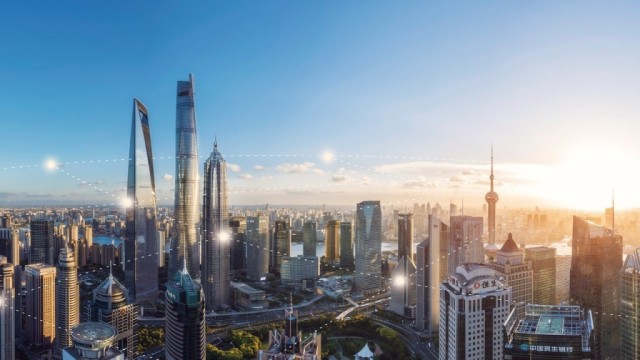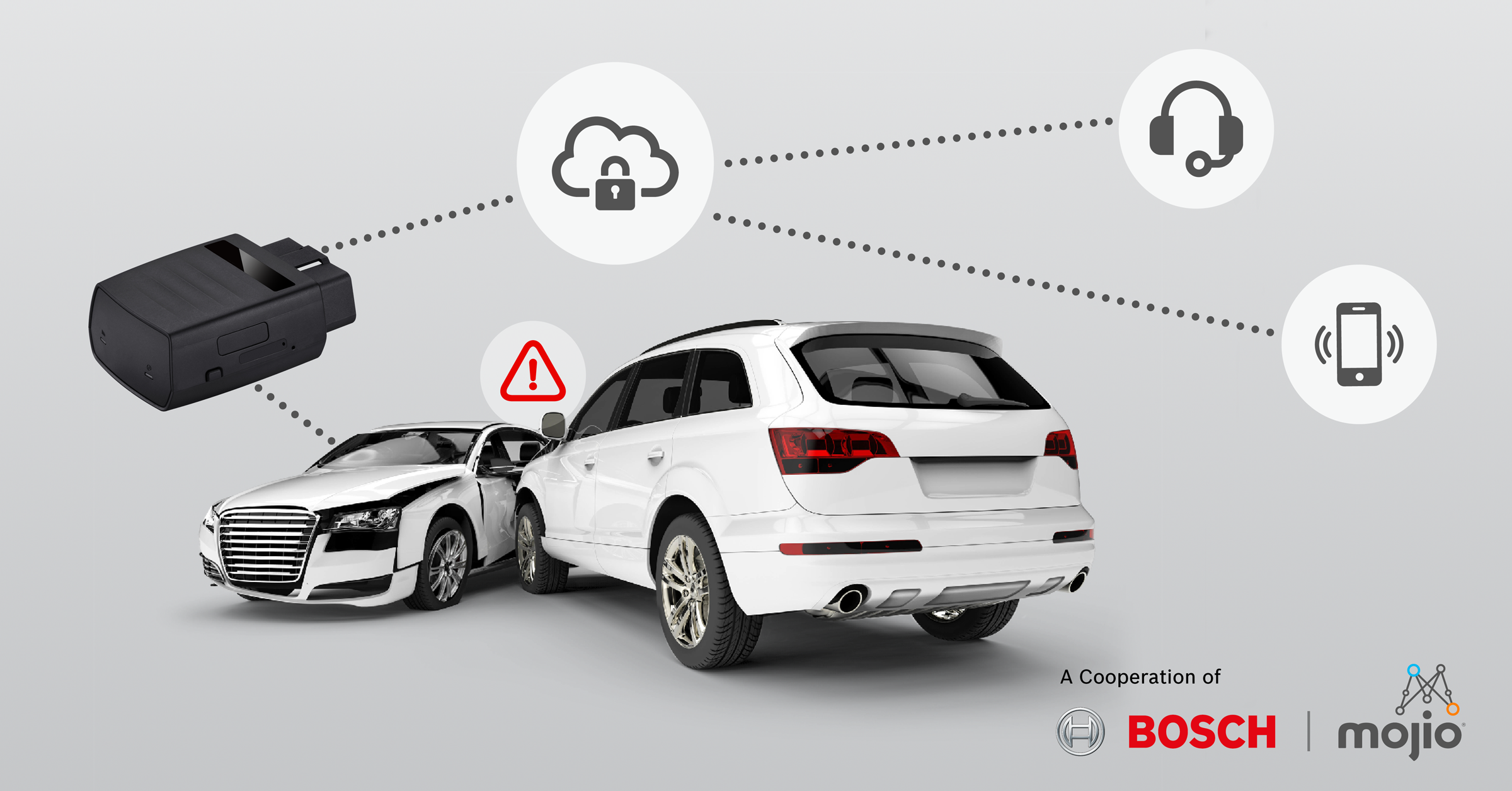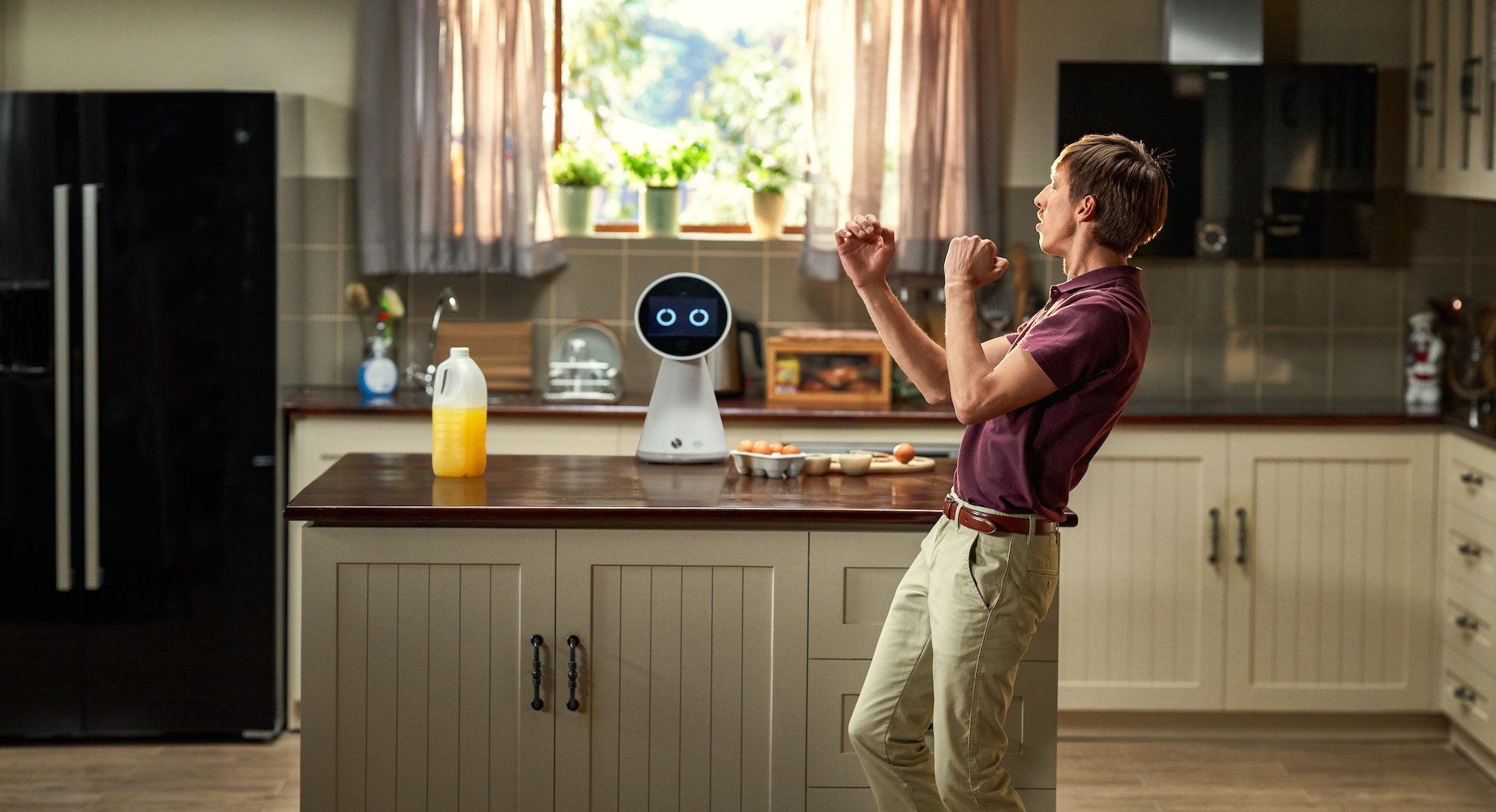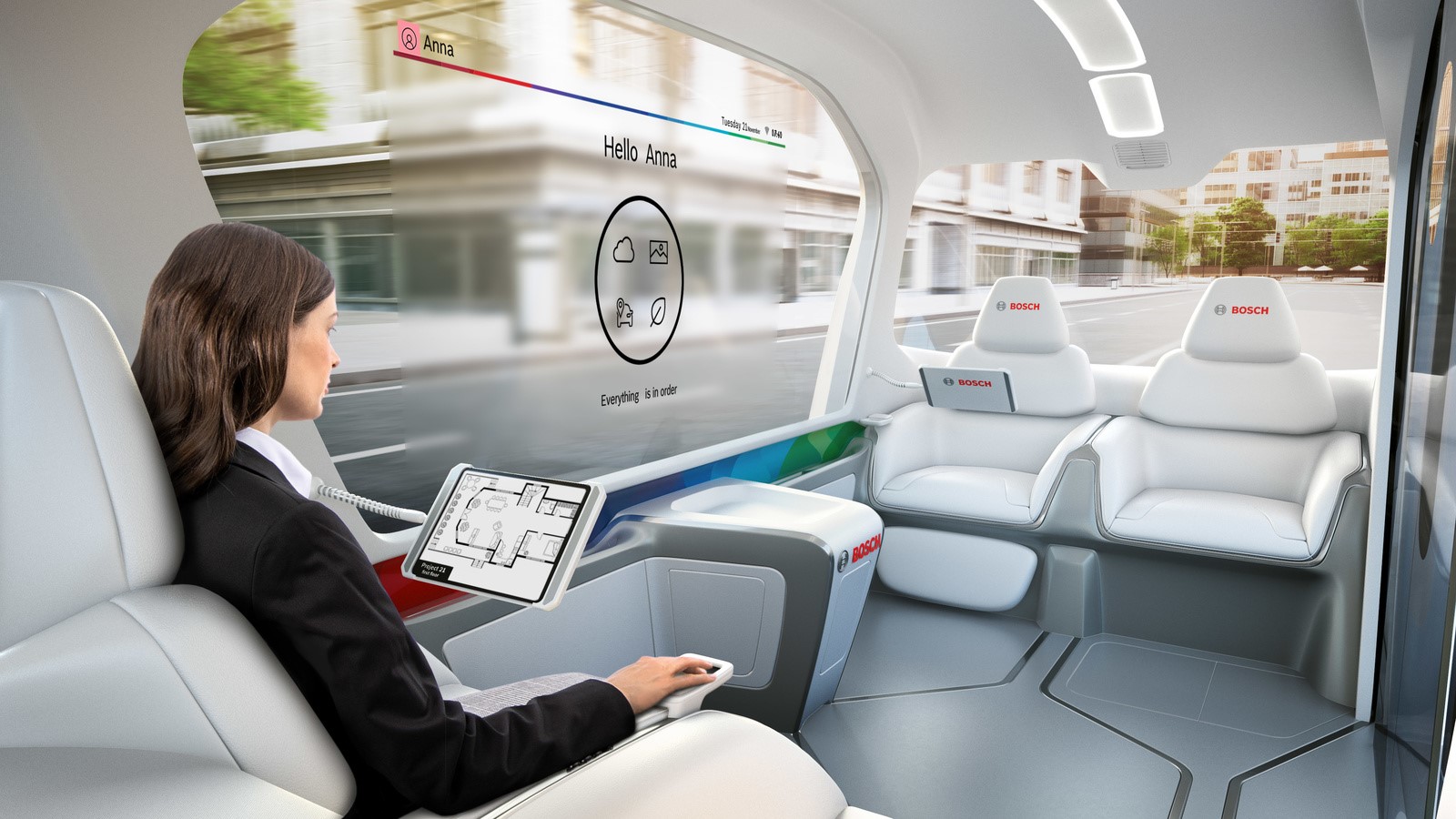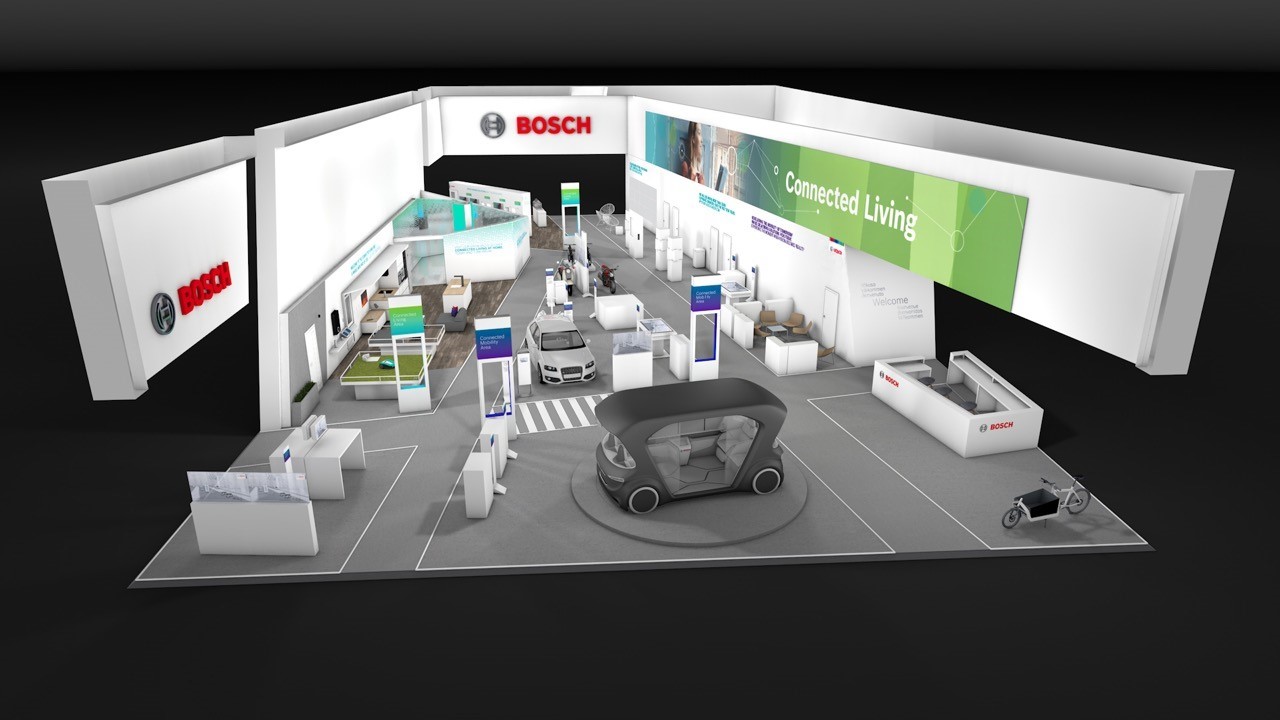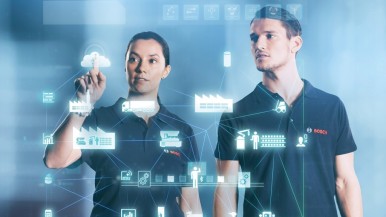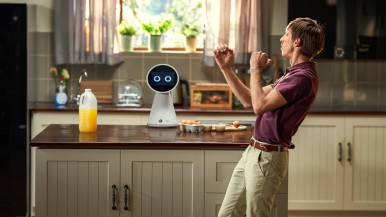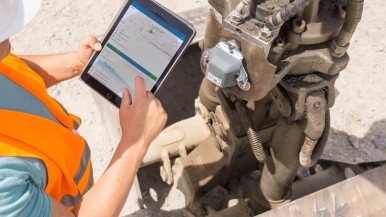Las Vegas, NV – More and more, the internet of things (IoT) is changing our world. At CES 2019 in Las Vegas, Bosch is showing what it is already capable of today. From a concept for a shuttle vehicle that makes a new kind of mobility tangible, to fridges with connectivity that give advice on food storage, to smart lawn mowers that learn by doing – the spectrum of solutions Bosch is presenting at the world’s largest consumer electronics show is huge. “Bosch recognized the huge opportunities of the IoT early on. We have been actively shaping the connected world for nearly ten years now,” says the Bosch board of management member Dr. Markus Heyn. “Today, we are a leading IoT company. Step by step, we have extended our software and IT expertise.” Using its own IoT cloud, the company has already carried out more than 270 projects in field such as mobility, smart homes, smart cities, and agriculture. The number of sensors and devices connected over the Bosch IoT Suite has risen nearly 40 percent since last year, and now stands at 8.5 million.
Bosch at CES 2019
- PRESS CONFERENCE: In Ballrooms B, C, and D, Mandalay Bay Hotel, Las Vegas South Convention Center, Level 2, from 9:00 to 9:45 local time on Monday, January 7, 2019.
- BOOTH: Tuesday to Friday, January 8–11, 2019, in the Central Hall, booth #14020
- FOLLOW the Bosch CES 2019 highlights on Twitter: #BoschCES
- PANELS WITH BOSCH EXPERTS:
- Wednesday, January 9, 2019, 9:00 to 10:00 (local time) “Connected home innovations” with Anne Rucker, Global Head of Digital Strategy, Venetian, Level 4 Marcello 4405
- Wednesday, January 9, 2019, 9:00 to 10:00 (local time) “Technology, Jobs, and the Future of Work” with Charlie Ackerman, senior vice president of human resources North America, Las Vegas Convention Center, North Hall N258
- Wednesday, January 9, 2019, 14:15 to 15:15 (local time) “IoT to the max, thanks to 5G” with Davie Sweis, Vice President of Global Digital Business at Bosch in North America, Las Vegas Convention Center, North Hall N256
About Bosch
Bosch has been present in Belgium since 1907. The Bosch Group employs approximately 1,150 associates in Belgium. The main sites are located in Tienen, Anderlecht and Mechelen.
The Bosch Group is a leading global supplier of technology and services. It employs roughly 417,900 associates worldwide (as of December 31, 2024). According to the pre-liminary figures, the company generated sales of 90.5 billion euros in 2024. Its operations are divided into four business sectors: Mobility, Industrial Technology, Consumer Goods, and Energy and Building Technology. With its business activities, the company aims to use technology to help shape universal trends such as automation, electrification, digitalization, connectivity, and an orientation to sustainability. In this context, Bosch’s broad diversification across regions and industries strengthens its innovativeness and robustness. Bosch uses its proven expertise in sensor technology, software, and services to offer customers cross-domain solutions from a single source. It also applies its expertise in connectivity and artificial intelligence in order to develop and manufacture user-friendly, sustainable products. With technology that is “Invented for life,” Bosch wants to help improve quality of life and conserve natural resources. The Bosch Group comprises Robert Bosch GmbH and its roughly 470 subsidiary and regional companies in over 60 countries. Including sales and service partners, Bosch’s global manufacturing, engineering, and sales network covers nearly every country in the world. Bosch’s innovative strength is key to the company’s further development. At 136 locations across the globe, Bosch employs some 86,900 associates in research and development, of which roughly 48,000 are software engineers.
The company was set up in Stuttgart in 1886 by Robert Bosch (1861–1942) as “Workshop for Precision Mechanics and Electrical Engineering.” The special ownership structure of Robert Bosch GmbH guarantees the entrepreneurial freedom of the Bosch Group, making it possible for the company to plan over the long term and to undertake significant upfront investments in the safeguarding of its future. Ninety-four percent of the share capital of Robert Bosch GmbH is held by Robert Bosch Stiftung GmbH, a charitable foundation. The remaining shares are held by Robert Bosch GmbH and by a corporation owned by the Bosch family. The majority of voting rights are held by Robert Bosch Industrietreuhand KG, an industrial trust. It is entrusted with the task of safeguarding the company’s long-term existence and in particular its financial independence – in line with the mission handed down in the will of the company’s founder, Robert Bosch.
Additional information is available online at www.bosch-press.be, www.bosch.be, www.bosch.com, www.iot.bosch.com, www.twitter.com/BoschBelgium, www.linkedin.com/company/bosch-belgium/ and YouTube: Bosch Belgium

